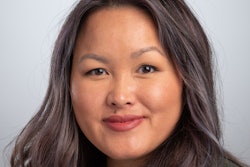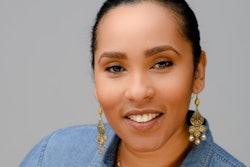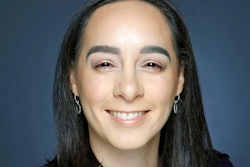Dr. Sharrelle Barber
Title: Inaugural Director of the Ubuntu Center on Racism, Global Movements and Population Health Equity and Assistant Professor, Department of Epidemiology and Biostatistics and the Urban Health Collaborative, Drexel University
Age: 38
Education: B.S., biology, Bennett College; MPH, health behavior and health education, University of North Carolina-Chapel Hill; and Doctor of Science, society, human development and health, Harvard University
Career mentors: Dr. Ana V. Diez Roux, Drexel University; Dr. Felton James Earls, Harvard University; Dr. Sherman A. James, Duke University; and Dr. Chandra L. Ford, UCLA
Words of wisdom/advice for new faculty members: “Don’t be afraid to chart your own path.
Dr. Sharrelle Barber, a social epidemiologist, deftly combines the roles of scholar and activist. Dr. Leslie Ain McClure describes Barber as “a scholar, an advocate, and a social justice warrior.”
Epidemiologists investigate patterns and causes of disease, and social epidemiologists focus on the social-structure factors that impact health. Barber examines the role of structural racism in shaping health and racial/ethnic health inequities among Black people in the U.S. and Brazil. She is the inaugural director of the Ubuntu Center on Racism, Global Movements and Population Health Equity at Drexel University’s Dornsife School of Public Health.
“She speaks out about racial and other inequities,” said McClure, professor and chair, Department of Epidemiology and Biostatistics at Dornsife School of Public Health. “What’s so important is she does it from a data-driven perspective, using her research foundation … taking her research knowledge and translating it into advocacy and social justice.”
As an undergraduate at Bennett College, a women’s HBCU, Barber embraced the idea of not only pursuing a career, but also having a purpose, which she spoke of in her valedictory address. “It’s the legacy of Black women being on the frontlines of some of the most important movements in our country,” she said.
Barber examines the impact of structural racism as well as viable solutions. “If we understand it to be a structural problem, what are the kinds of structural anti-racism solutions that we need to develop in order to actually mitigate these inequities?” she said.
The COVID-19 pandemic brought a public spotlight to health and healthcare inequities. Barber served as the National Advisor and Coordinator for the Poor People’s Campaign COVID-19 Health Justice Advisory Council. She said the pandemic provided an opportunity to articulate the ways in which structural racism operates to produce pernicious racial health inequities.
“During the pandemic, I was able to do both some collective writing and some reflective writing,” Barber said. She wrote the commentary piece “Silence is No Longer an Option: Reflections on Racism and Resistance in the Midst of Coronavirus Disease” for Epidemiology.
“One of the first pieces on racism and COVID was written by myself and some colleagues (Black epidemiologists) as a blog post for the Interdisciplinary Association for Population Health Sciences,” she continued. “It was titled ‘Racism in the Time of COVID-19.’ It came out just as data was emerging on the racial inequities.”
The Ubuntu Center launched in November 2021 as a space where Barber, several colleagues, and students do rigorous transdisciplinary research and thinking about movements, organizers, and activists helping to shape an understanding of racism and the means for addressing it.
Barber played a vital role in hiring faculty and staff for the center. “I led the planning and development of our vision and mission, which was a collaborative process,” she explained, “thinking about how we do anti-racism scholarship collectively, intentionally, and in a way that really leads to transformative change.”
Barber is an assistant professor in the Department of Epidemiology and Biostatistics, and she still has her own research, including leading an NIH funded R01 grant that looks at neighborhood change within the context of Jackson, Mississippi, and how that influences chronic disease. Along with several collaborators, a brief for another project will soon be released titled “Making the Invisible Visible: Race, Racism and Health Data, Lessons from Latin American Countries.”
She loves teaching and seeing students gain more nuanced thinking. McClure said Barber’s influence will be seen in the years ahead as some of her students pursue graduate studies as well as having a societal impact. Said McClure: “I think she will have the opportunity to impact policy that can directly improve the health of Black Americans and hopefully decrease racial inequities.”





















